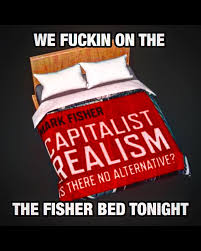The "means of production" is a very abstract and fundamental concept. I think its right for you to question it, and how it relates directly to you. Its a very general concept, and everything you are asking of of applies to is very specific. The means of production has been well defined it seems elsewhere in the discussion, but its basically "everything that is used in human production" which is the driving force of history from a Marxist/sorta Hegelian perspective. So it is a big deal.
But what is also relevant, is how production is defined, and namely who owns its products. You work in IT (so do I) so in that example you own your work laptop? That laptop is MoP, same as the painter tools, and you sell your product to the company, who uses it to run how ever millions of transactions. Or making those transactions possible for that company, integrating some new feature. So more specifically, those tools are Capital, which is an essential mean of production under capitalism. But a ton of the infrastructure for those transactions was publicly funded, paid for with taxes. But now most if not all of that infrastructure is privately owned.
So in that way you are like the painter, in that you sell directly the product of your labor to the capitalist. Both you and the painter are workers in the same way, but youre an intellectual worker vs he is a physical laborer. but the paint and personal items in your personally owned house is for your personal use, whereas the software you sell to a company is for commercial use, in effect the software is capital, whereas the paint on your walls is not. But if the painter painted the walls at your company's office, that would be capital. The painter "bought the paint with his own money"? But you are paying him, so you are buying the paint.

Are you a capitalist or a communist? You're certainly not a communist, I believe what you are hinting at is "socialized" vs "individual" labor, and it is a historically progressive development of capitalism. How a software developer fits into the means of production is they aid in the exchange of money from the sale of commodities, and make the transactions possible. But at the end of the day some product is being sold to some end user and you help to make that possible. Without the transaction there is no sale, which means no exchange of commodities for more money than they cost to produce and bring to market (profit or surplus value) which is the basis for the whole system, it is the point where the exploitation occurs.
Everyone is always "exploited" by the system, its part of what drives competition. But to be more specific, everyone is alienated from the system of production. we are all very individuated in our thinking, which bears out in our alienated experience. In more advanced or more advantaged countries, with a higher outlay of financial or investment capital, the class character of any individual is more specific and hard to suss out. In developing or economically repressed nations, where the factories of 1870s Germany still exist, alongside the factories of 1840s England, if not in capital than in conditions, the class character of any individual might be more clear and concise. Our "class character" is determined by our relationship to production, and it is not altogether straightforward. I've seen many fights like "are cops workers" and even "are baristas workers" that have sent me.
All that to say, capitalism promotes cooperation through competition, it socializes production, so that the product of your labor is just one part of a very complex whole. Even the painter has to pay for insurance on his van, probably has a couple loans for his business. The fact that your labor is socialized doesn't make you a communist. Communism is the struggle for a classless, moneyless society. It too will presumably also have socialized production, but also socialized ownership of the means of production whereas under capitalism the MoP is privatized. This is the fundamental contradiction within capitalism and it is right that you found yourself wondering about it.